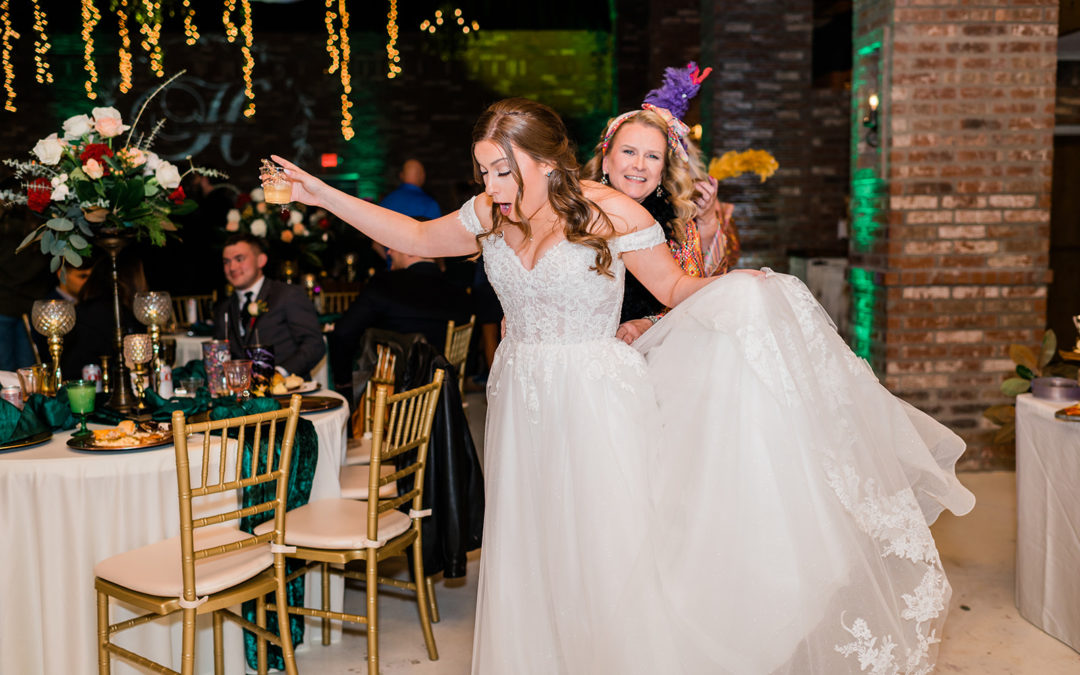Your wedding day is a beautiful celebration of love, and nothing sets the mood quite like music. Music plays a crucial role in creating the perfect atmosphere, whether it’s the heartfelt song during your walk down the aisle or the lively tunes that get everyone dancing at the reception. But as you plan your big day, you might wonder if you should DIY your wedding music or hire a DJ. This blog will guide you through the pros and cons of DIY wedding music and offer you invaluable tips to help you orchestrate a seamless soundtrack for your special day.
The Allure of DIY Wedding Music
DIY wedding music has become increasingly popular among brides-to-be seeking a personal touch without the price tag of hiring a professional DJ. One of the most significant advantages of DIY music is the cost savings. By curating your playlist, you eliminate the need for expensive DJ fees, leaving you with more room in your budget for other essentials.
Another benefit is the level of control you have over your playlist. DIY music lets you choose every song that resonates with your unique love story, ensuring the soundtrack feels genuinely personal and meaningful. Plus, you won’t have to worry about your DJ playing songs that aren’t your style or forgetting to include your must-have tracks.
However, there are challenges to manage when opting for DIY music. It requires careful planning and attention to detail, as you’ll need to ensure smooth transitions between songs and a steady flow that keeps the energy alive throughout your event. You’ll also be responsible for managing the equipment, which can be daunting if you’re unfamiliar with sound systems. But with the right preparation and tips, you can pull off an unforgettable musical experience on your wedding day.
Pros and Cons of Not Hiring a DJ
When considering whether to go DIY or hire a DJ, weighing the pros and cons is essential. As mentioned earlier, cost-effectiveness is a significant advantage of DIY wedding music. Without the need to pay for a DJ’s services, you’ll have extra funds to allocate towards other wedding expenses, like decor or catering. Additionally, you have complete creative control over your playlist. You can customize the songs to suit your tastes and ensure that the perfect tune accompanies every moment.
On the flip side, not hiring a DJ means you’ll miss out on their expertise and experience in reading the crowd and maintaining the energy on the dance floor. A seasoned DJ knows how to mix tracks seamlessly and adjust the music to match the event’s mood. They also handle equipment setup and troubleshooting, freeing you from technical concerns.
Ultimately, the decision comes down to your priorities and preferences. If you’re comfortable taking on the responsibility and want to infuse your personality into the music, DIY wedding music can be a rewarding choice. But if you’d prefer to leave it to a professional, a DJ might be the way to go.
Tips to Do It Yourself!
- Curate Your Playlist: Creating a well-thought-out playlist is the foundation of a successful DIY wedding music experience. Start by identifying the key moments of your wedding day that require music, such as the ceremony, cocktail hour, dinner, and reception. Each of these segments will have its musical vibe, so consider the emotions and atmosphere you want to evoke during each part. Incorporate a variety of genres and tempos to keep the energy dynamic and engaging. Consider including classic love songs, contemporary hits, and even nostalgic tunes that resonate with your guests. Remember to add a mix of slow dances and upbeat tracks to cater to all age groups and musical tastes. With a well-curated playlist, you’ll create an unforgettable musical experience that leaves a lasting impression on everyone present.
- Test the Sound System: Testing the sound system well in advance is crucial to ensure a seamless musical experience on your wedding day. If the venue does not provide equipment, you will need rent or purchase audio equipment, such as speakers, amplifiers, and a mixing console, if needed. Once you have the equipment, conduct a thorough sound check at your venue and familiarize yourself with the equipment’s settings and controls. Enlist the help of a tech-savvy friend or hire a professional to assist with the setup and monitoring during the event.
- Create Smooth Transitions: One of the challenges of DIY wedding music is creating smooth transitions between songs. To achieve a natural flow, plan your songs’ order carefully, considering each track’s tempo and mood. Think of your playlist like a wave, with peaks and troughs that guide the event’s mood. Use software or apps to pre-mix tracks or fade in and out to create seamless transitions.
- Assign a Music Coordinator: While DIY wedding music allows you to take charge of your playlist, having someone on hand to manage the music during the event is essential. Assign a trusted friend or family member as your music coordinator, and provide them with clear instructions on operating the equipment and managing the playlist. Having a dedicated music coordinator allows you to enjoy your special day without constantly worrying about the music.
- Prepare a Backup Plan: Even with the best planning, unexpected issues can arise during your wedding. Prepare a backup plan for your DIY wedding music to avoid any musical mishaps. Start by creating a secondary playlist or downloading your entire playlist to multiple devices, such as a smartphone, tablet, or laptop.
Remember that planning, creativity, and flexibility are the keys to successful DIY wedding music. With these tips in hand, you’ll be well on your way to crafting the perfect musical backdrop for your wedding, leaving you and your guests with cherished memories for years to come.

